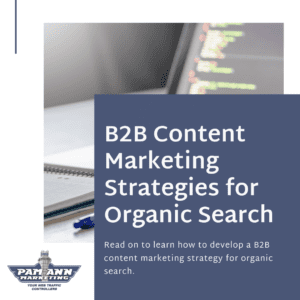
Google is Helping U.S. Government Sites Advertise the Sale of Illegal Drugs
Bad Actors Capitalize on Simple Website Flaws Believe it or not, U.S. government and university websites are being used to promote the sale of illegal
Home » Articles

Bad Actors Capitalize on Simple Website Flaws Believe it or not, U.S. government and university websites are being used to promote the sale of illegal

Breaking news in the world of SEO: The Department of Justice has ruled that Google is indeed a monopoly. Video Why Was Google Declared a

You finally made it! Your business website finally gets tons of organic traffic and converts well. You have put years of effort into your content,

When you think about SEO, the first thing that may come to mind is improving your ranking on search engine result pages (SERPs) by incorporating

Marketing strategies are key to any business’s success. For small businesses, developing the right digital marketing strategies is vital to their success. While it might

Five years later, this is still my absolute favorite SEO keyword research tool! I’ve updated our original review with my latest thoughts and added more about my favorite features.

If you’re a frequent flyer here, then you know that we’ve talked about how to optimize your blog posts for SEO and how to create

In April, my company celebrated 10 years in business. I can’t even begin to describe the level of gratitude that I have for achieving this

When it comes to choosing a website hosting platform, we prefer working with WordPress from an SEO perspective. However, we understand that working with WordPress

Oftentimes, business-to-business (B2B) content marketing can get a bad rap for being boring and dull in comparison to B2C marketing, but as SEMrush states, “content

This past summer, we shared Google’s announcement that “page experience signals would be included in Google Search ranking.” This new performance evaluation is meant to ensure users

Search Engine Optimization (SEO) is the key to making your business visible and searchable for your target audience. However, there’s more to SEO than the
Automated page speed optimizations for fast site performance